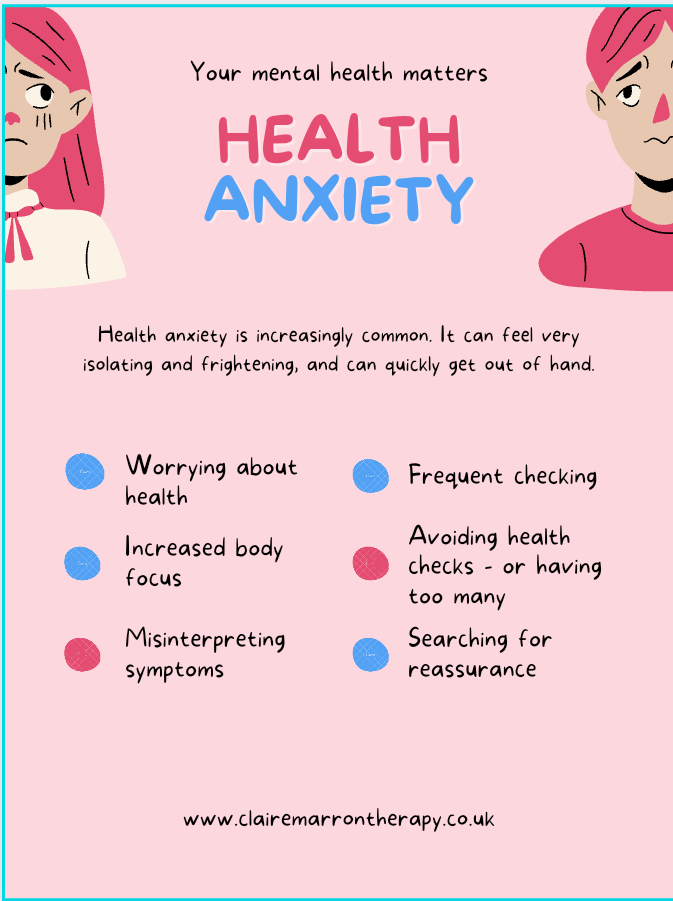Managing Health Anxiety
- Claire Norris

- Mar 16, 2022
- 3 min read
Updated: Dec 20, 2023
Health anxiety is more common than people realise. It is also more serious than people realise. More than just worrying about health, true health anxiety is really quite debilitating to the person involved. It can quickly follow a pattern like the one below.
Health anxiety can begin after a period of ill health, after seeing a friend or family member ill, after a health scare or during times of public health concerns such as pandemics. Or it can even be a response to excessive life stressors.
Whatever the cause, it doesn't feel good at all.
Worrying about health can become prolonged, with people often focusing excessively on a particular symptom or concern. This may stay the same or it may change. Often when reassurance is given, the person may then begin to shift the worry to a different symptom. Or they may find their worries are resolved only to find themselves worrying about a different illness or symptom. This worry can then lead to heightened focus on the body area or symptoms - then it becomes a cycle of alert and noticing things that probably wouldn't normally be noticed.
This can then become a worrying concern/symptom as bodily sensations are zoomed in on and misinterpreted. We all have an in built super scanner to keep us alert to danger - very useful in our ancestors days when they faced danger that they had to fight or run from potentially on a daily basis - not so useful to us except when there's a true threat. But of course the part of our brains that protect us from threat is too clever at noticing danger - just not developed enough to know the difference between a real threat and an imagined threat..so guess what they do - that's right they focus in on any body sensation as if it were a predator or tiger about to attack us.
Increased anxiety can then lead to physical symptoms such as those experienced during fight or flight. And of course they themselves are then interpreted as something being wrong.
This then leads to increased hypervigilance or checking for symptoms. The person may then begin to search for information or reassurance. Checking google to hopefully get some reassurance that the symptoms are harmless, only this is more likely to lead to more panic as the internet tells us every possibility. Increased need for reassurance can also take the form of constantly asking friends and family what they think, comparing symptoms, or asking them to look at a visible sign on the body such as a mole or a spot.
It can also lead to a need to have medical tests in an attempt to find out what is wrong, but even when these come back normal, the need to keep checking is there. Either that or the focus will shift to a different symptom.
So how can you break out of this cycle?








Comments